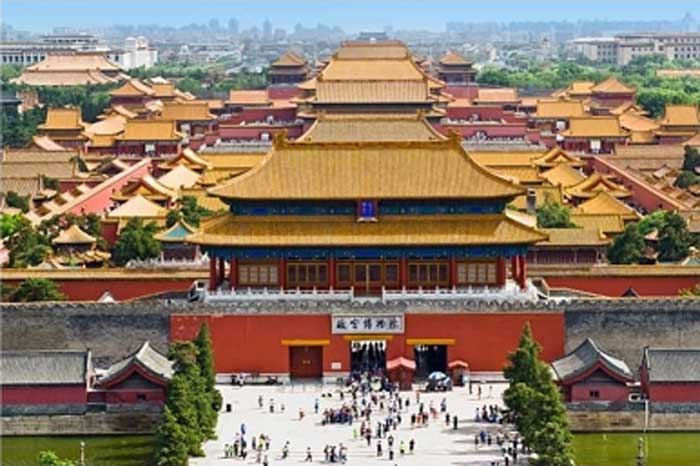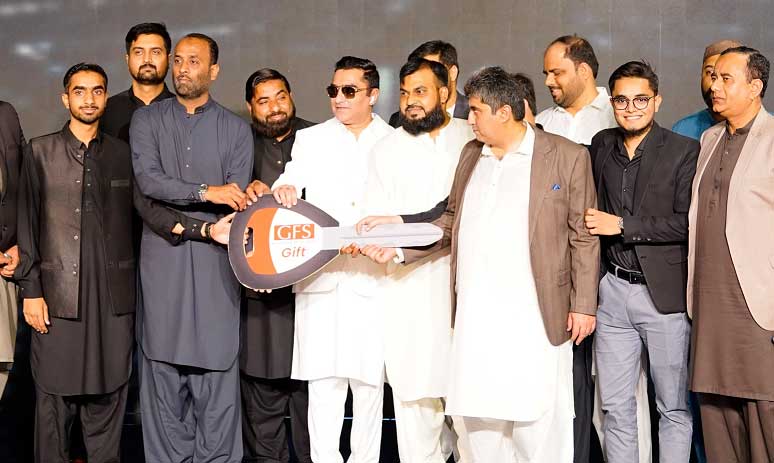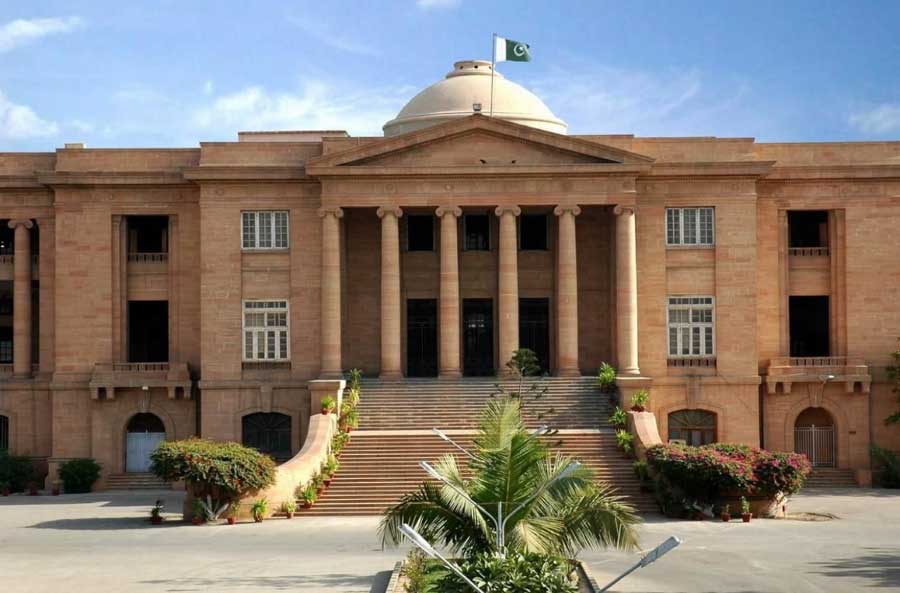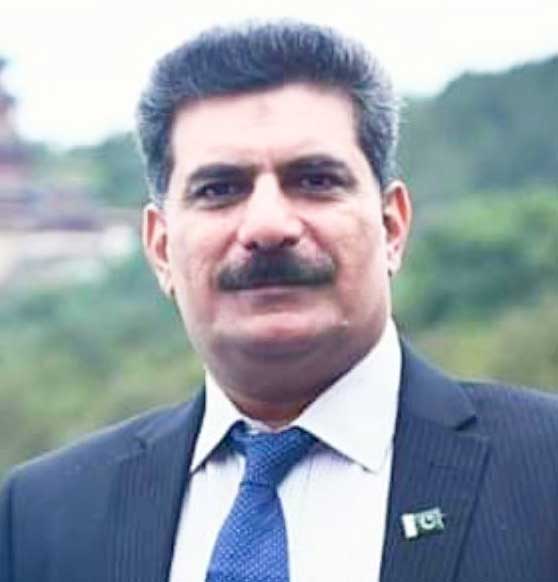
Our tourist guide, Jason,we were unable to remember his Chinese name. Most people in China also have English names to make it easier to communicate with people from other countries. This is a good strategy. We have read many things about China and its traditions, the most important of which is that in the past it was very difficult for other nations to communicate with China. Now the Chinese have made it easier for them. People should learn Chinese and the Chinese are mastering the languages of other nations. Having an English name is also a way to get closer to other nations, which has been happily accepted. Likewise, our host coordinator Miss Tong also had a slightly different Chinese name but Tong was very easy.
Jason said that today we will go to “Tianamen Square”, which has a historical significance. It is an open field of about 53.31 acres. Although its history begins in 1417 when there was Ming Dynasty. Then in 1860, the Second Opium War was fought. According to the historical facts, a gathering was held here in 1919 as well, but the most important is related to October 1, 1949, when Chairman Mao Zedong announced the establishment of modern China. Gatherings are held here on important national days.
Jason was highlighting the importance of this great square as we drove along as we approached the square. It seemed that people were flocking to where the beautiful portrait of Chairman Mao was displayed. A wonderful museum next to the square. And the body of Chairman Mao is also preserved in front of the same square. A long queue of people was moving forward. It is convenient to use in rain and sun as needed but we made the mistake of not carrying an umbrella so it was better to enjoy the increasing intensity of the heat.
When our group approached the security gate, we were stopped by security officer. It was surprising that we were official guests, but still the investigation began as to what purpose the journalist group was visiting this square. Enough discussion and discussion. Later it was decided that we will come again to this place because the information of our arrival was not received by the security authorities.
Mr. Jason and Miss Tong contacted their office and explained the situation. We didn’t want to embarrass our hosts, so we told them that it’s not a big problem. We can come back to this great square. Moving on, I later researched on my own sources and realized that while there are good memories associated with this square, some bitter memories are also a part of history.
However, to reduce this fatigue, we reached a halal food restaurant with Miss Tong and Mr. Jason. There are a large number of halal food restaurants in China. A large number of Muslims live there, while Muslims from all over the world also make business trips to China. Therefore, there is a big market for it. The area of Beijing we were passing through was feeling very clean and transparent environment. This city is completely different from what he had drawn on the map. His friend had mentioned a lot about environmental pollution and strongly advised him to be careful, but Ahmed Malik was stunned to see the cleanliness and rows of trees and could not leave without telling. You see that this propaganda against China is done a lot in the Western media to make people shy away from visiting China, but if you research the weather in Beijing, you will realize that it rains a lot, so the air is very clean and soothy.
In the restaurant, our hosts chose dishes that were not unfamiliar to us. Most importantly, everyone in China drinks hot water. When you go to a restaurant, the first thing you are served is hot water with lemon. Soft drinks like Coke, 7Up can be available on your request. However, you will find that most people carry a hot water bottle with them. This is the secret to their good health and not being obese. Spices and red chillies become very important. It was also arranged. China also has red chillies but they eat them in less quantity. Our food uses a lot of ghee or oil and spices. To stay healthy, we should revise this style of banquet in our lives in Pakistan.
Our hosts were eating with us in our love. This can be described as the highest example of hospitality. They did not order separate food for themselves, but the food they chose for us, they happily ate together with us. People were very happy that Miss Tong and Mr. Jason were well aware of the etiquette of hospitality and were genuinely enjoying our respect.
The weather in Beijing had taken a pleasant turn after the earlier heat, with dark clouds adorning the sky. Miss Tong and Mr. Jason, our gracious hosts from lunch, were eager to lead us to another captivating destination in Beijing. As we embarked on a historical journey through Beijing’s past, Jason eloquently narrated the rich tapestry of China’s ancient and modern civilizations.
China’s illustrious history spans over three thousand years, marked by dynastic rule including the Shang, Qin, Zhou, and Han Dynasties, with the Han Dynasty standing as the pinnacle of ancient Chinese greatness. This era, known as the Great Age of Ancient China, saw the expansion of the Chinese Empire across present-day Korea and Vietnam, with over ninety percent of its populace identified as “Han People.” This ethnic majority, comprising approximately 18% of the world’s population, exemplifies the cultural unity that has endured through the ages, even as Chinese communities thrive worldwide, totaling around 60 million overseas.
Jason’s impassioned discourse on historical epochs and contemporary demographics left us mesmerized. We arrived at the Forbidden City amid a gentle drizzle,
its majestic allure heightened by Jason’s captivating narratives. Despite Miss Tong’s occasional linguistic struggles with English, her engagement with Jason’s storytelling was evident, occasionally exchanging words in Chinese.
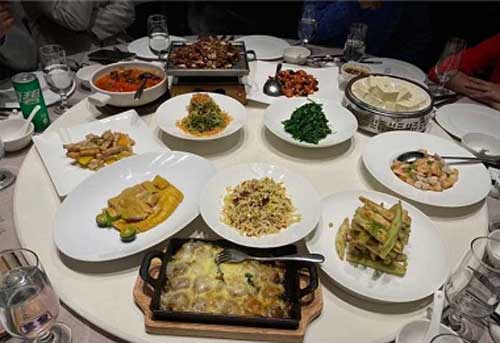
Professor Dr. Muhammad Ali Ehsan, deeply immersed in researching China for his upcoming book, posed numerous inquiries, drawing insightful responses from Jason. As we ventured through the Forbidden City, now a UNESCO World Heritage Site, its sprawling palaces and temples reflected the grandeur of dynastic China. The meticulous preservation of its ancient splendor stood as a testament to China’s rich cultural heritage.
Navigating through the bustling crowds, Jason equipped us with plastic raincoats, ensuring our comfort as we explored the palace grounds. Amidst the throngs, Miss Tong’s vigilant eye ensured no one wandered off, swiftly reuniting the group when necessary.
As we queued for tickets, the warmth of the Chinese people’s welcome resonated deeply, symbolizing the enduring friendship between Pakistan and China. Greetings of “Ni Hao” echoed, forging connections transcending language barriers. Amidst the picturesque scenery of the artificial lake, Jason regaled us with tales of the Forbidden City’s origins, recounting its construction by Zhu Di, the Ming Dynasty monarch, between 1405 and 1420. Over the centuries, subsequent rulers of the Ming and Qing Dynasties left indelible marks on its storied halls, culminating in its eventual public opening in 1925.
As we marveled at the palace’s intricate architecture and sprawling expanse, Jason’s narratives breathed life into its storied past, revealing a realm where emperors once reigned supreme, enforcing their will with unwavering authority.


